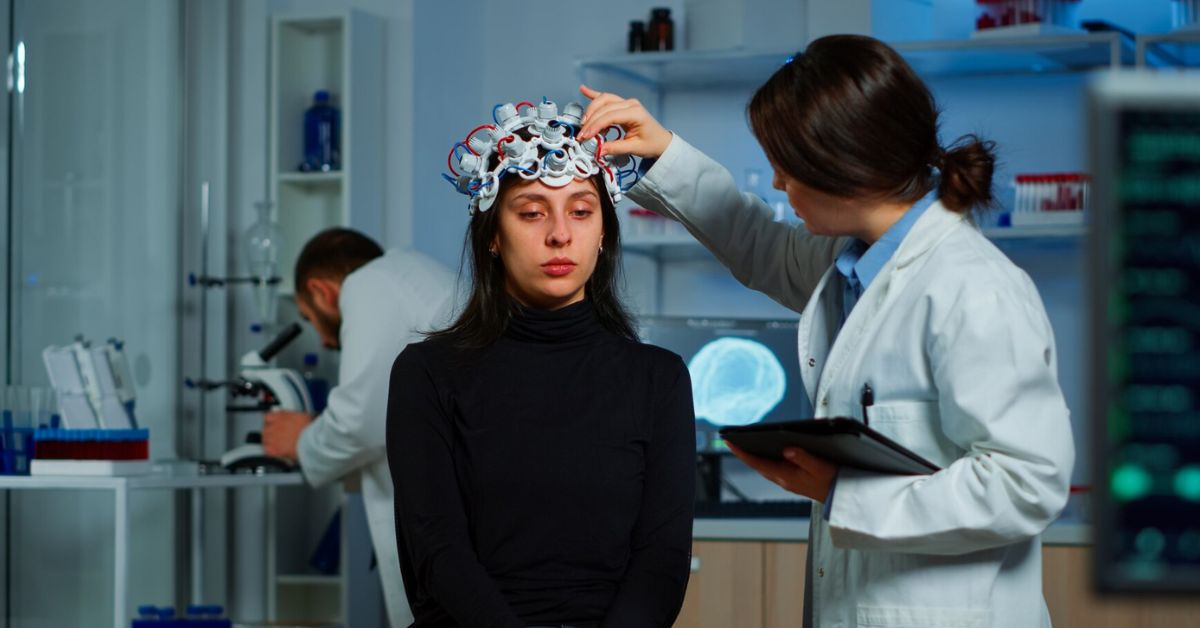Introduction to Modern Depression Treatments
Depression, a pervasive mental health disorder impacting millions globally, is experiencing a significant transformation in treatment methodologies. Traditional approaches such as antidepressant medications and psychotherapy have been the backbone of treatment for decades. However, recent advances have introduced newer methods that offer innovative pathways to managing depression. These contemporary treatments give patients more options, tailoring approaches to individual deficiencies, ultimately promising quicker relief and fewer side effects than conventional methods. The integration of these strategies showcases a shift towards more holistic and patient-centered approaches in mental health care, aligning with an era where personalization is key in medical treatments.
This evolution broadens the scope of available therapies and brings renewed hope to individuals who have struggled with traditional methods without notable success. By expanding the arsenal of treatment options, practitioners can address depression more effectively, enhancing the quality of life for many.
The Science Behind Innovative Therapies
The scientific breakthroughs underlying new treatments for depression involve remarkable advancements in understanding brain function and genetic predispositions. Technologies such as transcranial magnetic stimulation (TMS) employ magnetic fields to stimulate nerve cells, thereby alleviating symptoms of depression in a targeted manner. This non-invasive procedure shows promise, particularly for individuals who have not responded to medication. Among emerging approaches, accelerated TMS offers a more intensive treatment schedule, potentially reducing the time required for therapeutic effects. Research supported by the National Institutes of Health emphasizes the importance of genetic insights, which help refine treatment options and anticipate patient responses, making the application of these therapies more precise and effective.
Moreover, the continuous exploration of neurological pathways involved in mood regulation aids in the development of these therapies, offering fresh avenues for treatment that cater to a wide range of patients, from those experiencing chronic depression to those suffering from acute episodes.
Exploring Alternative Approaches in Depression Care
In addition to advanced technological treatments, there is growing interest in alternative approaches that focus on holistic care, such as mindfulness, yoga, and exercise. These practices complement traditional treatment plans by addressing both mental and physical aspects of depression. They offer patients non-pharmacological options that improve overall well-being and reduce stress, which is pivotal in managing mood disorders. Regular physical activities can release endorphins, acting as natural mood lifters, and mindfulness exercises like meditation can enhance emotional regulation and self-awareness.
Patients have reported notable improvements in mood and energy levels when these practices are integrated into their routines. Such holistic methods provide additional support and empower individuals, granting them an active role in their treatment plan. This comprehensive approach encourages self-care and resilience, helping to bridge the gap between conventional and modern treatment strategies.
Benefits of Personalized Treatment Plans
Personalization in depression treatment is recognized as a cornerstone for achieving long-term effectiveness. By considering individual histories, lifestyle factors, and previous treatment responses, healthcare providers can tailor plans that are more likely to yield positive outcomes. This bespoke approach allows for a synergistic combination of therapies—ranging from talk therapy and medication to innovative treatments like tms therapy and ketamine-assisted therapy, ensuring that interventions are both effective and adaptable as a patient’s condition evolves.
Focusing on the individual rather than adopting a one-size-fits-all model makes treatment more relevant and patient-centric. This approach improves immediate outcomes and promotes lasting stability, decreasing the likelihood of relapse.
Challenges in Current Treatment Methods
Despite progressive advancements, current depression treatments face significant challenges, primarily surrounding issues like accessibility and side effects. Antidepressants, while beneficial to many, come with potential side effects that can be burdensome. Additionally, therapy can often require a long-term commitment, which might not be feasible for everyone due to logistical and financial constraints. As such, a crucial need is to create scalable solutions that make mental health care more approachable and inclusive.
Efforts to overcome these barriers are paramount in reshaping how mental health services are delivered. From increasing community outreach to implementing policy changes that reduce treatment costs and enhance access, overcoming these challenges requires collective action to ensure mental health care is a universal right accessible to all who need it.
The Role of Technology in Treatment Advancements
Technology is increasingly vital in transforming depression treatment landscapes by enhancing accessibility and providing continuous support. Digital tools, including mental health apps and telepsychiatry, serve as adjuncts to traditional therapies, offering patients new ways to manage their symptoms and access care. These platforms provide flexibility, allowing therapy to fit into diverse schedules and lifestyles while offering real-time monitoring and progress tracking.
The adaptability of these technological advances presents an opportunity to widen the reach of mental health services, breaking geographical and logistical barriers. By integrating these tools within established care structures, patients gain unprecedented access to helpful resources and professional guidance, fostering a more supportive and efficient healthcare environment.
Insight Into Future Developments
The future of depression treatment holds great potential, with continuous research and innovation paving the way for groundbreaking therapies. Staying informed about new developments ensures that patients receive the most advanced care available, crucial in a field as dynamic as mental health.
Expectations for future therapies include refined versions of existing treatments and pioneering techniques that address depression from novel angles. As science delves deeper into the complexities of the human brain, these advancements not only maximize current treatment efficacy but also introduce possibilities for preventative care, offering hope for reducing the incidence and impact of depression globally.
Conclusion: Integrating New Strategies into Mental Health Care
As mental health care moves towards integrating new strategies, the synergy between conventional and innovative treatments represents a significant opportunity for improving patient outcomes. By embracing a wide array of methods—from advanced technologies and genetic insights to alternative therapies and personalized plans—the landscape of depression treatment is becoming more inclusive, adaptive, and effective.
Overall, these advancements in depression care offer renewed hope and practical solutions for managing the disorder. Through ongoing research, collaboration, and innovation, the future beckons a more effective, patient-centered approach to mental health that can transform how depression is understood and treated in both clinical and community settings.











